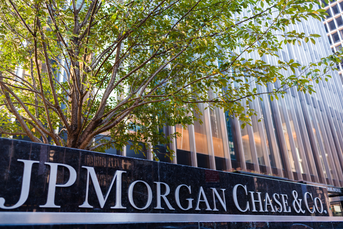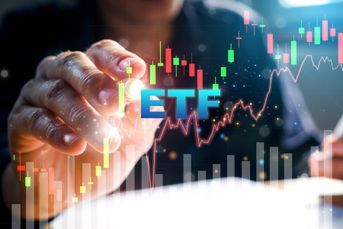After SEC OK, US bitcoin ETFs saw $30B in new money ‘almost overnight’

Report reveals inflows that were extremely positive, but still ‘underwhelming’ compared with the Canadian experience.
Following a highly anticipated thumbs-up from the Securities and Exchange Commission, the first-ever US spot bitcoin ETFs saw tens of billions of dollars in net inflows, representing a major win for the niche crypto ETF space.
Counting the assets that converted over from Grayscale’s bitcoin closed-end-fund-turned ETF, the crypto ETF category saw $30 billion in new money come in “almost overnight” last month, according to a new report from National Bank of Canada.
Not counting that conversion, net inflows into crypto ETFs last month would only have been $1.6 billion. While that figure’s decidedly positive, it was still “underwhelming” compared to the aftermath of the bitcoin ETF race that transpired in the Canadian ETF space – which is 20 times smaller than the US – nearly three years ago, the report’s authors said.
“Canadian bitcoin ETFs first launched in February 2021 and received CAD $700 million in flows that month,” they said. “[M]oney continued to pile in every month that year, finishing with a net cumulative inflow of CAD $6.1 billion.”
That exuberance didn’t last. From the start of 2022, Canada-listed bitcoin ETFs started to hemorrhage assets on negative crypto news, resulting in a net outflow of CAD $100 million to end the year.
“If Canadian bitcoin ETFs are any leading indicator for what could happen in the U.S., there may be a period of steady monthly inflows before ‘adoption’ saturates,” the National Bank report said. “From that point, demand for bitcoin could wax and wane depending on sentiment conditions around speculative technology and the crypto industry’s development.”
More broadly, National Bank reported that the US ETF market saw $71.9 billion in net inflows in January, with $22 billion going into equity ETFs. This was broken down into $15 billion for U.S. equity, $3.6 billion for international equity, and $700 million for emerging market equity. Japan ETFs also performed well, receiving $1.8 billion in inflows, or 6% of the starting assets for the month.
Despite the overall positive inflow into equity ETFs, the U.S. sector and factor ETF categories experienced relatively stagnant demand. Sector ETFs recorded net inflows of $1 billion, while factor ETFs saw outflows of $2 billion. The reshuffling of a BlackRock model portfolio primarily influenced the flows into factor ETFs. Technology sector ETFs led within their category, securing $3.4 billion in inflows.
Fixed-income ETFs reported $20 billion in inflows, with investors anticipating lower short-term interest rates and moving away from cash-like ETFs. US investment-grade corporate bond ETFs were notable beneficiaries, receiving $9 billion in inflows, the highest since June 2020. Conversely, U.S.-listed environmental, social, and governance ETFs experienced $2.8 billion in outflows, with significant redemptions from various iShares ESG ETFs.
Why advisors should be adding emerging market debt to portfolios
Learn more about reprints and licensing for this article.








